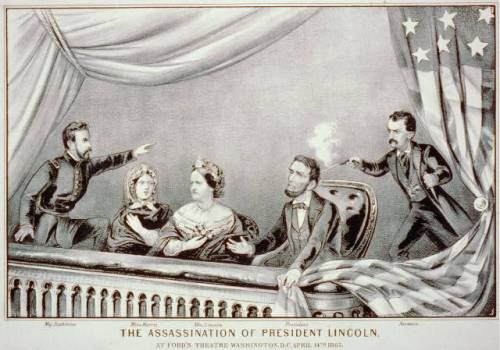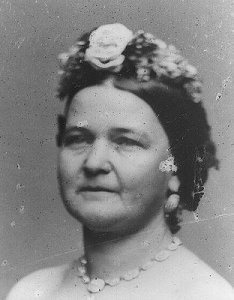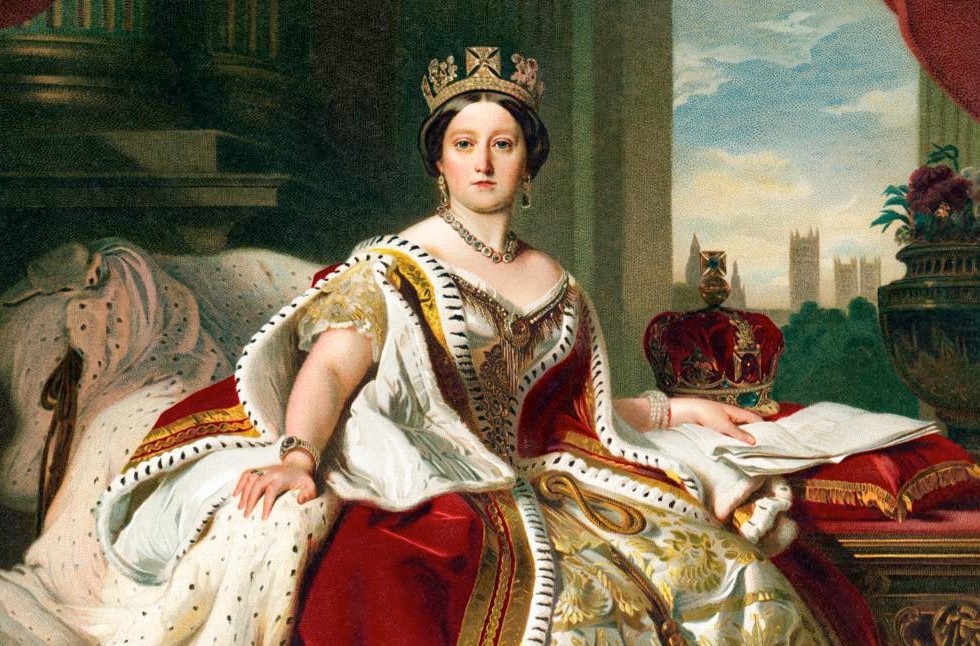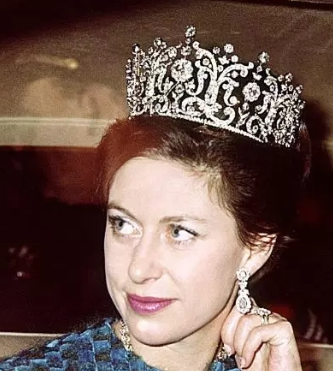 April 14, 1865, was one of the happiest days of Abraham Lincoln’s life. It was Good Friday. General Robert E. Lee had surrendered five days earlier and the Civil War was over. The Union had been saved. Lincoln had a relaxing breakfast with his 21-year-old son Robert, whom he called “Bob,” who had just arrived for a visit. Robert Lincoln (1843-1926) had studied law at Harvard University until the closing weeks of the war when he joined the Union Army as part of General Ulysses Grant’s staff.
April 14, 1865, was one of the happiest days of Abraham Lincoln’s life. It was Good Friday. General Robert E. Lee had surrendered five days earlier and the Civil War was over. The Union had been saved. Lincoln had a relaxing breakfast with his 21-year-old son Robert, whom he called “Bob,” who had just arrived for a visit. Robert Lincoln (1843-1926) had studied law at Harvard University until the closing weeks of the war when he joined the Union Army as part of General Ulysses Grant’s staff.
“Well, my son, you have returned safely from the front,” President Lincoln said. “The war is now closed, and we soon will live in peace with the brave men that have been fighting against us.” (1) He was eager to see the country heal and wanted no persecutions for the Confederacy, no “bloody work.” (2) Elizabeth Keckley, Mary Lincoln’s personal assistant, said that Lincoln’s face “was more cheerful than [she] had seen it for a long while.” (1)
At 11 a.m. he met with his regular cabinet and General Grant, who was concerned that not all of the Confederate forces under Johnston had surrendered to General Sherman. Lincoln told Grant not to worry, that good tidings were coming, “for he had last night the usual dream which he had preceding nearly every great and important event of the War.” He described the dream. He had seen himself on the water in some type of boat moving rapidly “towards an indefinite shore.” (1)
That afternoon, he took his usual carriage ride with Mary. Mary had never seen her husband so “cheerful,” she told a friend, “his manner was even playful. At three o’clock, in the afternoon, he drove out with me in the open carriage….I said to him, laughingly, ‘Dear Husband, you almost startle me by your great cheerfulness.'”
He replied, “And well I may feel so, Mary. I consider this day, the war, has come to a close….We must both, be more cheerful in the future – between the war and the loss of our darling Willie – we have both been very miserable.” As the carriage rolled toward the Navy Yard, Lincoln recalled happy memories of is old Springfield home and the adventures as a lawyer riding the circuit. He keenly felt the pressures of the presidency lifting and the future looking brighter.

Once back at the White House, Lincoln sat down and began reading a book, something humorous by John Phoenix. Mary kept calling him to dinner but he wouldn’t put the book down; he was totally absorbed – as always. Finally, Mary insisted he come to the table at once. They had to eat early, she reminded him, as they had plans to see Laura Keene perform in the play “Our American Cousin” at Ford’s Theatre that evening. It had been announced in the papers; they had to go. Lincoln preferred to stay home. He had no need for the escape of the theatre that day; he was already jubilant. But go he must, as he didn’t want to disappoint the people.
The morning edition of the National Republican had announced that Ulysses and Julia Grant would join the Lincolns in the president’s box for the play, but Julia didn’t want to go, saying she had her heart set on visiting their children in New Jersey. While that may have been true, it was more likely that it was an excuse to get out of an engagement with Mary Lincoln, whom she despised.
The Lincolns had a hard time finding a replacement for the Grants. Secretary of War Stanton and Secretary of the Treasury Chase also declined. Stanton had been trying for months to keep the president from exposing himself to the danger of such public places and both men thought the theatre a frivolity. It was decided that Clara Harris and her fiance, Major Henry Rathbone, would substitute for the Grants.
A little after eight o’clock, the carriage that would take Abraham and Mary to Ford’s Theatre rolled onto the front drive. Lincoln no doubt sighed. “I suppose it’s time to go,” he told Speaker Schuyler Colfax, “though I would rather stay.” He assisted Mary into the carriage and they took off.
(1) Goodwin, Doris Kearns. Team of Rivals. (New York: Simon & Schuster, 2005)
(2) Freedman, Russell. Lincoln: A Photobiography. (New York: Scholastic Inc., 1987)
Read Full Post »



 April 14, 1865, was one of the happiest days of Abraham Lincoln’s life. It was Good Friday. General Robert E. Lee had surrendered five days earlier and the Civil War was over. The Union had been saved. Lincoln had a relaxing breakfast with his 21-year-old son Robert, whom he called “Bob,” who had just arrived for a visit.
April 14, 1865, was one of the happiest days of Abraham Lincoln’s life. It was Good Friday. General Robert E. Lee had surrendered five days earlier and the Civil War was over. The Union had been saved. Lincoln had a relaxing breakfast with his 21-year-old son Robert, whom he called “Bob,” who had just arrived for a visit. 



















